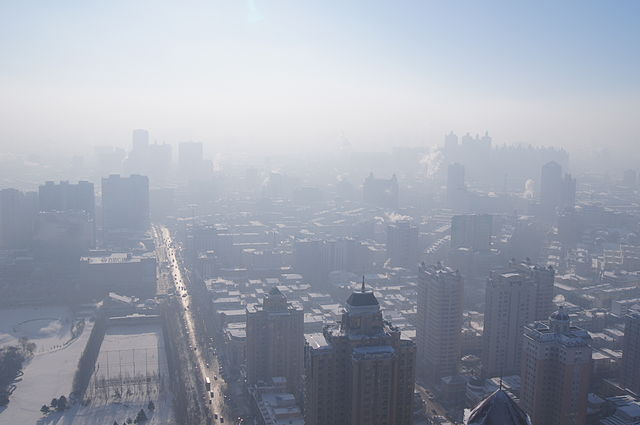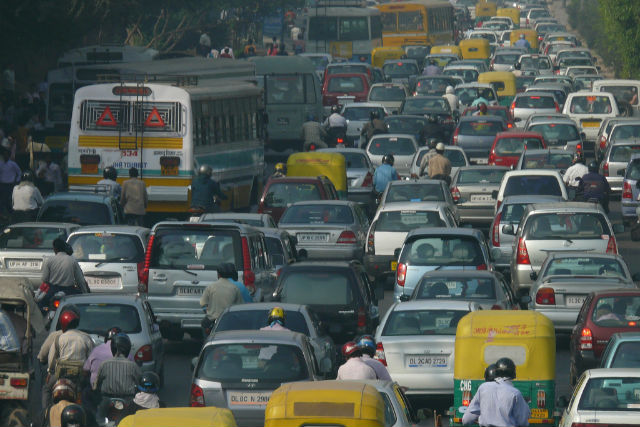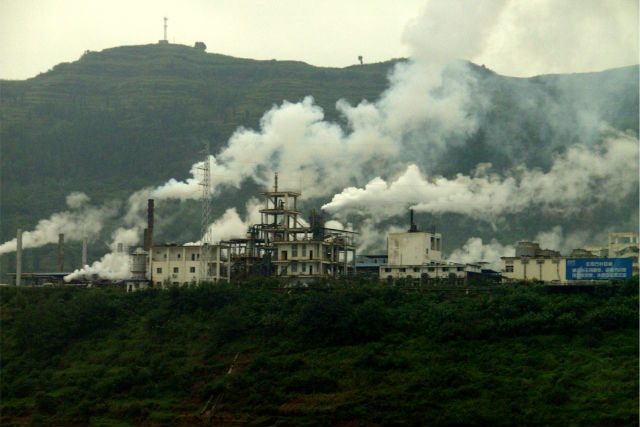Sales of new cars in China have risen to their highest level in nine months, but the reason hasn’t got anything to do with a last-minute push to buy Christmas presents.
Instead, deadly levels of air pollution and an unseasonably cold November have been linked to the increase in sales as the Beijing government issued its first-ever red alert for smog levels earlier this week.
Of all new vehicles sold, SUVs remain the most popular choice, followed closely by minivans, while the sales of smaller saloons and hatchbacks actively fell, according to data from the China Passenger Car Association.
The Association’s official sales report said: “Adverse weather conditions played a role in November’s strong sales showing. The unusual cold was followed by off-the-charts smog levels. Those with children are more inclined to buy cars, given the perception that the air inside a vehicle is cleaner.”
SUVs and minivans appear to be chosen because they have more space inside, which means more clean air and more room for all the family.

Correlation between the sales of cars and smog levels also highlights the challenge that China faces in cleaning up its notoriously unhealthy air. For one thing, the surge in car ownership in the past decade has been one of the major contributors to increasing air pollution.
Already, the government has been prompted to impose quotas on registering vehicles in major urban areas and to promote emission-free electric vehicles. Even still, it also lowered purchase tax in October to protect its economic growth, and if the perception that cars are a healthier alternative, the problem will only perpetuate itself.
Jochen Siebert, managing director at the Shanghai-based JSC Automotive Consulting, said: “It is ironic that the smog is making people more interested to buy cars. It’s funny but it’s logic that we probably won’t understand.”
Thick smog has covered all of Beijing and much of northern China for the past month, in what local news agencies have been called the worst period of air pollution this year. Levels of the most harmful airborne particulates have been registering well beyond what’s considered hazardous to human health, and it has yet to abate.

Following the declaration of a red alert warning, the Beijing city government has ordered schools and some factories to shut, and has also forced around half the cars in the city off the roads.
In total, it’s estimated that around two million private cars have been taken off road as part of the government’s attempt to banish the toxic fog. Traffic police have caught 3,960 vehicles flouting the ban since its introduction on Monday.
One of the drivers, who gave his name as Mr Qian, told the Guardian that he was fined around £10 for taking his car out on the wrong day. “I drove today because I didn’t really know about [the red alert,” he said. “I only found out about it after the traffic police stopped my car. I think we should comply with the government’s policy. After all, the pollution is really bad.”
With the state of China’s air quality having been making headlines, some car manufacturers have already tried to cash in on the pollution crisis by touting the qualities of the clean air inside their cars.

Volvo, which is owned by a Chinese parent company, the Zhejiang Geely Holding Group, has been making its in-car air quality a major selling point to the Chinese market since 2013. Li Shufu, the Group’s chairman claimed that the air inside its cars is as clean as fresh air from northern Europe, while print ads for the Volvo S60 in China say: “Clear air, close at hand.”
Likewise, Nissan’s upmarket Infiniti cars come with a ‘Forest Air’ filtration system, which it claims can effectively sterilise pathogens and also block polluted air and particulate matter. Even so, some experts remain sceptical of a car’s ability to truly block out smog.
Although both Volvo and Nissan scored particularly well on tests carried out on their air filtration systems, these tests mainly focused on volatile organic compounds, gases which can come from sources like paints.
The tests didn’t focus on the substances that health experts and environmentalists typically associate with air pollution, with the major substance measured known as PM2.5 - particulate matter that’s smaller than 2.5 micrometres in diameter.
Major sources of PM2.5, which is believed to be one of the biggest contributors to China’s smog problem is from coal-fuelled power and steels plants, as well as car exhausts.

Experts say it isn’t clear whether current filtration systems are effective against PM2.5, but most agree that even if they are, they won’t be for long. “As time goes passes, you must replace the filter with a new one,” Qian Hua, former head of the research institute of atmospheric environment at the Shanghai Academy of Environmental Sciences, says. “Otherwise it won’t work.”
Nonetheless, some automotive analysts in China don’t see the uptake in new vehicles as being directly related to pollution, and instead see it simply as a result of the government tax cuts.
Yale Zhang, managing director at Autoforesight Shanghai Co., said: “I don’t believe pollution is a factor, as there was pollution in previous years. It’s the purchase tax cuts that made sales go up so much.”
Even still, sales of new vehicles rose a full 18 per cent to 2.02 million in the last month alone. With stats like that in mind, it’s clear that for better or worse, China’s thirst for cars will be inextricably linked to the country’s pollution problem for some time to come.



